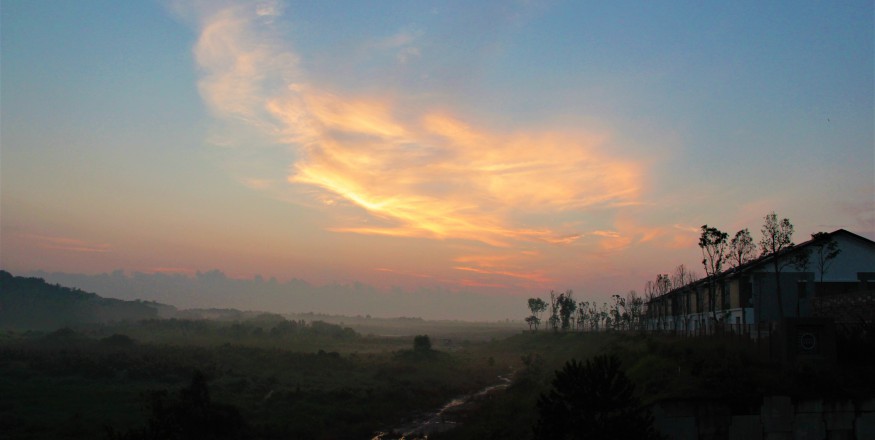The two made their way back into the winding aggregation of identical buildings—an architectural labyrinth where they had previously gotten lost. Cay was still grumbling about the tourist trap they had narrowly escaped, thanks to Judas’s intervention.
“Can’t believe those two just tried to rip us off like that,” Cay muttered.
“Yeah, that was unexpected,” Judas agreed.
“Thanks for the save, though,” Cay added, recalling how they were approached by two women in elaborate, pseudo-traditional ball dresses who had asked them for money under the pretense of a photo opportunity.
“No problem. Better that than losing forty euros to those fake Venetians.”
It was true. Along the coast, there were several women working in pairs, targeting disoriented tourists. Cay and Judas had watched an unsuspecting European girl reluctantly hand over twenty euros to two outstretched hands—one of the women gripping the girl’s phone as leverage, claiming photos had been taken. The "ball dresses" they wore didn’t even look authentic—more like costume-shop knockoffs. The women themselves bore appearances more common to Southeast Asia than to Venice.
Judas, unfazed, had been blunt in retrieving Cay’s phone, snatching it back from one of the scammers without hesitation. His height and calm assertiveness made him perfect for such confrontations—where Cay was observant and reactive, Judas acted with grounded precision. They complemented each other without needing to say much.
As they wandered deeper into the maze (a term Cay had grown fond of using), they stumbled upon what looked like a street of contemporary art galleries. Most were free to enter. Naturally, they took their time and explored as many as possible.
Like many casual visitors, they didn’t claim to fully understand contemporary art. It was obvious that painting and sculpture had evolved from depictions of external beauty to an interrogation of inner truths. But the experience often left the average viewer lost, struggling to connect with the artist’s meaning—if there even was one.
Still, it was forgivable. People wandered in, looked at the installations or canvases, whispered, “That’s interesting,” and moved on. Not everyone could be Van Gogh, or see like Picasso. Many modern artists explored themes intangible to the naked eye—grief, transcendence, or the soul’s decay—realities almost impossible to express in shapes and pigment.
Cay tried not to appear either pretentious or disinterested. They paced the galleries in moderate silence, just like most other visitors who had schedules to keep or destinations to reach. These art halls were like rest stops for the eyes and minds wandering through Venice’s puzzle-like paths—places where memories could pause for a brief breath.
By the time they finally arrived at the city centre, five hours had passed since they’d left their apartment. The sun blazed above. Their shoulders ached, but their spirits were lifted.731Please respect copyright.PENANAXImlagg0Pd
Judas’s parents hadn’t always been the way they were. There had once been a time—now faded into memory—when they were a genuinely happy family.
He was born in 1993, at the Princess Anne Maternity Unit beside Southampton General Hospital. His mother, Alexandre, had cradled him despite the exhaustion of childbirth. His father, Haze, had witnessed the entire process, his eyes wide with awe. That kind of pure joy—the kind only a newborn could bring—had lit up both their faces.
He grew up with Sunday roasts, loving glances, and homemade pancakes. Alexandre always made sure he ate before school, kissing his forehead goodbye as he left the house. His primary school years were blissful. Chosen as class rep almost every year, popular among his peers, and well-regarded by his teachers—even the principal knew his name for all the right reasons.
“Haze” was an odd name, but it suited him. It became part of his identity, even though he didn’t know why his parents had chosen it. He later joked about it in the boardroom: “Probably came to my dad during a drunken night in some WWI trench,” he’d say, to polite laughter. Despite the teasing, his colleagues respected him for who he was and what he’d accomplished.
As for Judas—his name had come from a more layered decision. Alexandre, a woman of deep sentiment, had hoped the biblical name could be reborn through her son, its legacy turned from betrayal into redemption. Haze had his doubts. He wasn’t a religious man, nor fond of its infamous connotation. But he respected his wife’s wishes. They agreed. Their son was unlike anyone else—and deserving of all their love.
Judas’s early life was chronicled obsessively, especially by Haze. The “Moments” folder on their old hard drive held everything from first steps to first words. Alexandre had hovered close whenever he tried to walk, never letting him fall too far. They refused to use a walking aid—believing it couldn’t compare to bare feet finding balance for the first time. These gestures, big and small, were the markings of unfiltered love.
These memories revisited Alexandre now as she stared out from the kitchen window—not the same one Judas looked out from in his room, and certainly not with the same intent. It had been almost two months since he returned from blood-soaked Myanmar.
She was making Sunday roast again. Slow-cooked pork joint, herb-seasoned asparagus, crispy goose-fat potatoes, and black pudding. Haze would be home in a couple of pints—like clockwork. Whether he came back for the food or the tradition, Alexandre could no longer tell.
Meanwhile, Judas sat in his room, shuffling the pages of his updated CV, trying to suppress the unwanted memories. But it was impossible. Those scenes would haunt him, no matter how hard he tried to push them away.
ns216.73.216.85da2





















